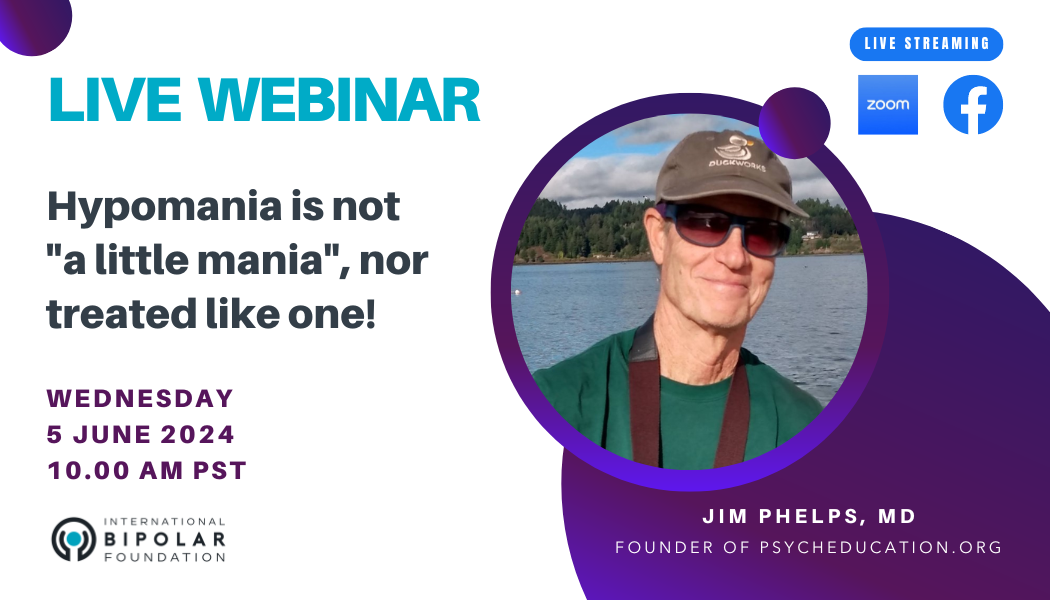June 5, 2024 at 10:00 AM PT
Register for the free webinar with Dr. Jim Phelps here.
Consider the difference between having a *really* good day versus losing contact with reality and risking one’s job, savings, relationships and safety. These are completely different experiences. But even though bipolar disorder is often defined as mania + depression, two thirds of people living with bipolarity do not have mania. They have Bipolar II, or “more-than-plain-depression-but-less-than-bipolar” — with hypomania, in some form. All this matters, because treatments are different for people who’ve had only hypomania, compared to those who’ve had manic episodes.
Dr. Phelps focused his practice on complex mood disorders for over 20 years. In addition to full-time patient care, from which he is now mostly retired, he has published multiple articles on bipolar disorders and the “Collaborative Care Model”, a system of psychiatric consultation in primary care. He currently serves as Research Editor for the Psychopharmacology Institute, preparing monthly “Quick Take” podcasts summarizing recent psychiatric articles. He is an emeritus member of the faculty for the psychiatry residency program in his hospital system; and founder of PsychEducation.org, a website with detailed information on bipolar disorders for patients and families. His books include Why Am I Still Depressed? and A Spectrum Approach to Mood Disorders, the latter for professionals and highly interested laypeople.

